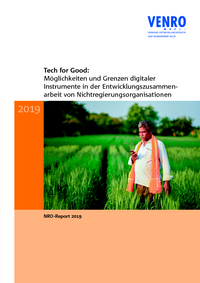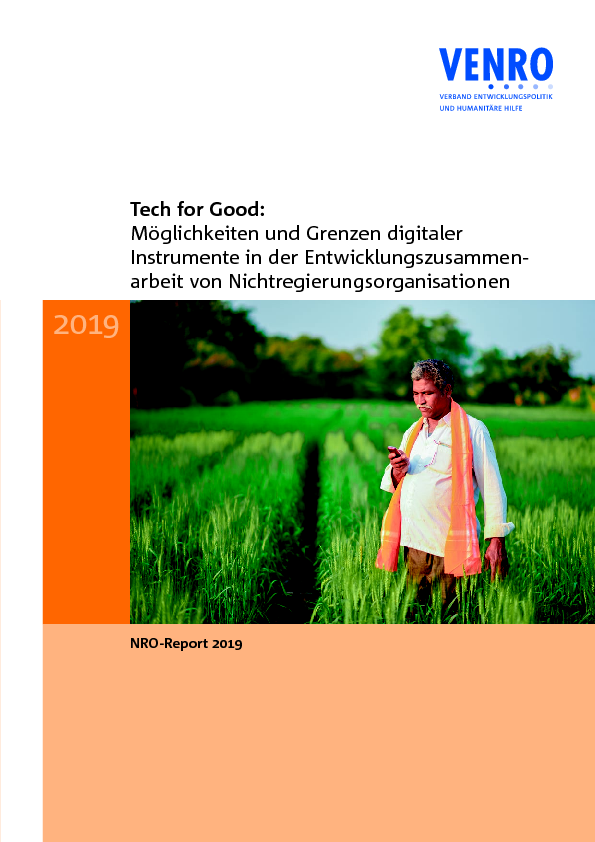Low-Tech
Digital instruments that do not require any network functionality/connection to the internet.
Medium-tech
Instruments are based on largely established technologies that require at least a temporary connection to the internet.
High-tech
Instruments include new technologies, complex combinations of different technologies and newly developed proprietary solution
Source: Venro (2019)
For instance, a possible low tech solution can be to use SMS for training.
A medium-tech solution could be to use Etherpads or Emails, since these require not an always online smartphone, nor are producing many data. A positive side effect is their descretion, since they are usually not involving tracking.
Also social media can be a solution. Messengers are widespread among learners of all ages. In many regions of the world, people cannot afford free unlimited access to the Internet and thus to all kinds of new technologies. They can, on the other hand, purchase inexpensive packages that unlock some core services and apps. Often YouTube and popular social media platforms, for example. Here, of course, users cannot really influence data collection and monitoring.
But does it really always have to be Google Doc? Isn't a simple pad sometimes enough? The message that low- and mid-tech solutions send us is:
Try to get as much as possible out of limited resources, instead of resorting to ready-made solutions for every special purpose imaginable. Isn't that roughly what is meant by "hacking"?
LOW-TECH
Radio
TV
Computers
Text messages
Mobile phones
Feature phones
Smartphones
Tablets
Satellites, GPS
Geographic information systems (GIS)
Social networks
Bots
Crowdsourcing
Cloud computing
3D printers
Drones
Mesh networks
Blockchain
Artificial intelligence
Speech recognition
Virtual reality
Augmented reality (3D visualisation)...
HIGH-TECH
Further Reading
Tech for Good
Lukas Goltermann (editor). Julia Manske, Melanie Stilz (authors): Tech for Good:The possibilities and limits of using digital instruments in international development projects of non-governmental organisations. Verband Entwicklungspolitik und Humanitäre Hilfe deutscher Nichtregierungsorganisationen e.V. (VENRO), Berlin 2019
Nils-Eyk Zimmermann
Editor of Competendo. He writes and works on the topics: active citizenship, civil society, digital transformation, non-formal and lifelong learning, capacity building. Coordinator of European projects, in example DIGIT-AL Digital Transformation in Adult Learning for Active Citizenship, DARE network.
Blogs here: Blog: Civil Resilience.
Email: nils.zimmermann@dare-network.eu






